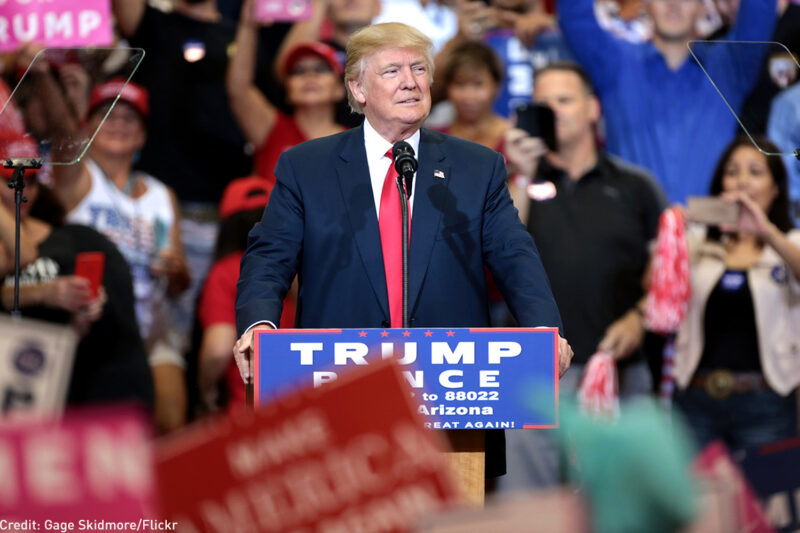
This piece originally ran in .
Cecillia Wang is deputy legal director of the American Civil Liberties Union. She was one of the attorneys who litigated the civil rights case against former Maricopa County, Ariz., sheriff Joe Arpaio brought by the ACLU and partner organizations.
President Trump rallied his crowd on Tuesday night by invoking the name of former Arizona sheriff Joe Arpaio. The reaction was exactly as expected.
“Do the people in this room like Sheriff Joe?” to thunderous applause. “I’ll make a prediction: I think he’s going to be just fine.”
With those words, Trump effectively promised to pardon Arpaio, who was convicted of criminal contempt of court, publicly disgraced and voted out of office by the majority of Maricopa County, Ariz., voters. In doing so, the president of the United States sealed another deal with an emboldened white-nationalist movement in our country.
Trump claims Arpaio was convicted for “.” That’s false. After the community rose up to stop his policies of racial profiling and illegal traffic stops — represented by lawyers at the American Civil Liberties Union and its partner organizations — a federal court an end to those unconstitutional policing tactics.
Arpaio “flagrant disregard” for a court order requiring him to stop illegal detentions and was again held accountable, first through a civil contempt-of-court trial in the civil rights case and then through a criminal-contempt prosecution by the Justice Department’s before a different district judge.
Arpaio was duly convicted that he violated court orders and did so deliberately — including Arpaio’s own statements to the press and the testimony of his former attorney and lower-ranking commanders that they had explained to Arpaio that his detention policy violated the court order but that he continued the policy anyway.
Arpaio is due to be sentenced for criminal contempt on Oct. 5. But now the president of the United States, who made a point of campaigning with Arpaio to crowds calling for more xenophobic policies, has thrown the power of his office behind Arpaio. The message to their mutual supporters is clear: The president would like law enforcement officials who pursue racist policies to be above the law.
Anyone who has paid attention to Trump’s policies knows that a potential pardon for Arpaio would not be his first expression of official racism. As a candidate, Trump made openly racist statements againstand. As president, he has followed through on those statements by promulgating policies that attack and communities of color.
In his first week in office, Trump issued a trio of discriminatory executive orders. On Jan. 25, Trump issued one on the southern border and another to, including measures to force local police into Arpaio-style tactics that have led to racial profiling and damage to public safety. Two days later, Trump on the admission of all refugees as well as all immigrants and visitors from seven majority-Muslim countries.
When white supremacists marching in Charlottesville praised Trump’s policies, this is what they were praising. A pardon of Arpaio should be seen for what it is: the latest attack on people of color by Trump.
The same core of white-supremacist support that cheered Trump’s initial response to violence in Charlottesville — blaming people on “” for the deadly incident — also fueled Arpaio’s racist policies. Arpaio supporters successfully demanded immigration sweeps based merely on the presence of Latino day laborers or Spanish-speaking employees in their neighborhoods. Arpaio spoke to this same constituency when, after being held in check by federal court orders, he defiantly said that no one could tell him what to do.
Neither Trump nor Arpaio can change the fact that federal courts held Arpaio accountable for his civil rights violations, or that the people of Maricopa County kicked Arpaio out of office. But if Trump follows through with the pardon, he will go down in history as the president whose first exercise of the pardon power was a shout to white supremacists: I’m with you.

